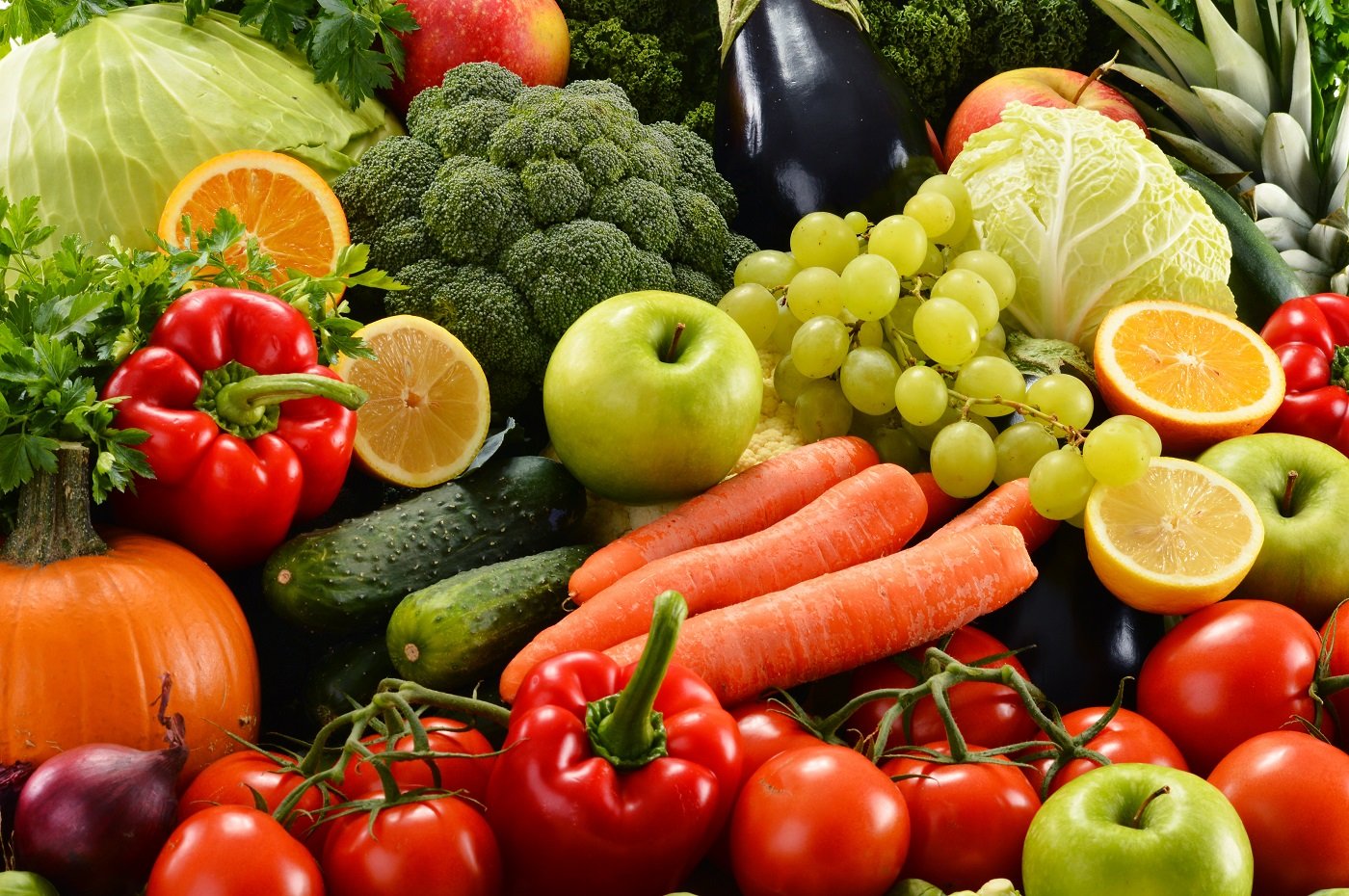Summer Sale - Up to 30% OFF - T&C's apply | Enjoy free NZ delivery on orders over $99
Summer Sale - Up to 30% OFF - T&C's apply | Enjoy free NZ delivery on orders over $99
Supplements
Shop by Health Concern
Shop by Category
Shop by Health Concern
Shop by Category
Skincare
Shop by Skin Type / Concern
Shop by Category
Shop by Skin Type / Concern
Shop by Category
Ten Foods That Reduce Your Risk of Getting Cancer
April 10, 2018 3 min read

What you eat has the potential to make or break your health. And by simply eating the right foods, you can drastically cut your risk of getting cancer.
The World Cancer Research Fund estimated that around 20 per cent of all cancers diagnosed were related to poor diet.
So Healthista's nutrition director, Rick Hay, has shared what foods are best for a cancer awareness diet and 10 tips to help boost your health.
1. Eat brightly coloured foods
"It's the green, red, orange, yellow and purple brightly coloured foods that can assist the body with its natural defences," Hay told Healthista.
"Essentially, the more bright stains that foods leave on your hands when you are prepping them the better."
Food packed with colour can help the body's immune system, which in turn can fight off the cells that create cancer in the body.
2. Love the leafy greens
"Kale, spinach, watercress and other leafy greens are rich in immune-boosting nutrients like vitamin C and beta-carotene," said Hay.
"Cruciferous vegetables that include broccoli, cauliflower, Brussels sprouts and cabbage are natural sources of the glucosinolates and isothiocyanates."
These vegetables act as an anti-inflammatory for the body and help eliminate chemicals and toxins.
3. Get into garlic and onions
Both garlic and onions are rich in glutathione, which helps to naturally remove toxins from the body.
"Garlic helps regulate blood sugar levels with low insulin levels being desirable to reduce cancer risk," Hay stated.
"They both will also assist if metabolic syndrome is a problem and contain diallyl disulfide, which may help to protect against certain cancers."
4. Yellow and orange fruits are for immunity
"The brightly coloured pigments found in orange and yellow plant foods are packed full of the super antioxidants carotenoids like alpha-carotene, beta-carotene, lutein and lycopene. All of which have properties that may protect the immune system," said Hay.
Carrots can even help fight existing cancer cells and keep them from further growing.
5. Think red for prostate cancer
Tomatoes are crucial in fighting prostate cancer, due to being packed with the antioxidant lycopene.
"Lycopene is broken down into a number of metabolites that are thought to have various biological effects, including antioxidant capabilities," reports the National Cancer Institute.
Lycopene is also found in apricots, guavas and even in watermelon.
6. Stock up on herbs
"Top of my herb and spice list is turmeric," says Hay. "The active ingredient is curcumin which is a key anti-inflammatory agent."
Curcumin can stop cancer cells and tumours from growing, especially in regards to breast, bowel and skin cancer cells.
Black pepper is also beneficial in helping the body to absorb curcumin.
7. Fill your fridge with fermented foods
Sauerkraut, kefir, tempeh and miso all help digestive health to flourish, and a strong stomach is key in fighting off many illnesses.
"These are key to good digestive health, and help with nutrient absorption and probiotic levels," said Hay.
"Good gut function is integral to any healthy diet. Without it, the gut's key nutrients may be lost."
8. Nail the nuts and seeds
A study published in the Nutrition Reviews journal stated that a healthy diet should contain almonds, walnuts, and hazelnuts which are high in dietary fibere and oleic acid.
"Whilst on the topic of gut health, chia and linseed provide fibre for digestive system support together with omega-3 fatty acids to help decrease inflammation," says Hay.
"Keeping inflammatory processes dampened down have been at the cornerstone of diets made to help prevent cancer for decades as the inflammation process itself can make cancer proliferation easier."
9. Get your green tea
Green tea is great for weight-loss and boosting the metabolism, but it is also beneficial in many other areas of health too.
"Green tea contains epigallocatechin-3-gallate, a protective compound shown to inhibit tumour invasion and angiogenesis," said Hay.
"Matcha green tea contains the highest percentage of the polyphenolic compounds – catechin, gallocatechin and EGCG."
10. More mushrooms
"Medicinal mushrooms contain the immune booster 1,3-beta-glucan," said Hay.
These important enzymes are mostly found in mushrooms such as reishi, shiitake, maitake and cordyceps.
These mushrooms help the immune system, as well as prebiotic and anti-inflammatory components.
NZ Herald
6 April 2018
Disclaimer: This article provides general information only and is not a substitute for medical advice. Abeeco products are for cosmetic and dietary purposes. Our supplements & tonics aren't intended to diagnose, treat, cure, or prevent any disease. Consult a healthcare professional for medical advice or before starting new supplements. Individual results may vary. Always follow product directions. Our products are not intended to treat or cure any medical condition.
